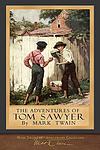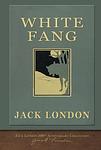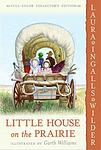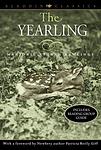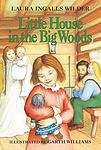The Greatest "Frontier and pioneer life, Juvenile" Books of All Time
Click to learn how this list is calculated.
This list represents a comprehensive and trusted collection of the greatest books. Developed through a specialized algorithm, it brings together 300 'best of' book lists to form a definitive guide to the world's most acclaimed books. For those interested in how these books are chosen, additional details can be found on the rankings page.
Genres
Frontier and pioneer life is a category of books that focuses on the experiences of individuals and communities who lived on the edge of civilization during the expansion of the United States in the 19th century. These books typically explore the challenges and triumphs of settlers as they established new homes, farms, and towns in the wilderness, often facing harsh weather, dangerous wildlife, and conflicts with Native American tribes. The genre also includes stories of explorers, fur traders, and other adventurers who ventured into uncharted territories, as well as memoirs and biographies of notable figures who played a role in shaping the American West.
The Juvenile category of books typically refers to literature that is written for children and young adults, typically between the ages of 8 and 18. These books are often characterized by their age-appropriate themes, language, and content, and are designed to engage and entertain young readers while also providing educational value. Juvenile books can cover a wide range of genres, including fiction, non-fiction, fantasy, science fiction, and more, and are an important part of the literary landscape for young readers.
Countries
Date Range
Reading Statistics
Click the button below to see how many of these books you've read!
Download
If you're interested in downloading this list as a CSV file for use in a spreadsheet application, you can easily do so by clicking the button below. Please note that to ensure a manageable file size and faster download, the CSV will include details for only the first 500 books.
Download-
1. Adventures of Huckleberry Finn by Mark Twain
The novel follows the journey of a young boy named Huckleberry Finn and a runaway slave named Jim as they travel down the Mississippi River on a raft. Set in the American South before the Civil War, the story explores themes of friendship, freedom, and the hypocrisy of society. Through various adventures and encounters with a host of colorful characters, Huck grapples with his personal values, often clashing with the societal norms of the time.
-
2. The Call of the Wild by Jack London
This book tells the story of a domesticated dog named Buck who is stolen from his home in California and sold into service as a sled dog in Alaska. As he faces harsh conditions and brutal treatment, Buck must learn to adapt to the wild and harsh environment, ultimately reverting to his ancestral instincts in order to survive. The book explores themes of nature versus nurture, civilization versus wilderness, and the struggle for dominance.
-
3. The Adventures of Tom Sawyer by Mark Twain
The book chronicles the mischievous adventures of a young boy living on the Mississippi River in the mid-19th century. The protagonist, a clever and imaginative boy, often finds himself in trouble for his pranks and daydreams. His escapades range from his romance with a young girl, his search for buried treasure, his attendance at his own funeral, and his witnessing of a murder. The narrative captures the essence of childhood and the societal rules of the time.
-
4. The Last of the Mohicans by James Fenimore Cooper
Set during the French and Indian War, this historical novel follows the journey of Hawkeye, a skilled frontiersman, and his two Mohican companions as they guide two daughters of a British colonel through the dangerous wilderness of the American frontier. The group faces numerous perils and conflicts, not only from the war-torn landscape and hostile tribes, but also from a treacherous Huron scout. The novel explores themes of racial conflict, survival, and the fading of indigenous cultures.
-
5. White Fang by Jack London
The novel tells the story of a wolf-dog hybrid named White Fang, who endures harsh conditions in the Yukon during the 19th-century Klondike Gold Rush. The narrative follows White Fang's journey from a life in the wild to domestication. He experiences cruelty and brutality from both nature and humans, but eventually finds kindness and compassion with a man who rescues him from a dog-fighting ring. The book explores themes of survival, nature versus nurture, and redemption.
-
6. Little House on the Prairie by Laura Ingalls Wilder
The book chronicles the adventures of a young pioneer family as they travel westward from Wisconsin to Kansas in the late 19th century. The family, consisting of a mother, father, and their three daughters, face numerous hardships and challenges along the way, including scarce resources, harsh weather conditions, and encounters with Native Americans. Despite these challenges, they manage to build a new life for themselves on the prairie, showcasing the resilience and determination of early American settlers.
-
7. The Yearling by Marjorie Kinnan Rawlings
"The Yearling" is a coming-of-age story set in the late 19th century, in the scrubland of Florida. It follows a young boy who adopts an orphaned baby deer and nurtures it into adulthood. As the deer grows, it begins to cause problems for the boy's family, who are struggling to survive as subsistence farmers. The boy is eventually forced to choose between his love for the deer and his responsibility to his family, leading to a heartbreaking decision that marks his transition into adulthood.
-
8. Little House In The Big Woods by Laura Ingalls Wilder
"Little House In The Big Woods" is a heartwarming story set in the late 1800s, following the life of a young girl named Laura and her family as they navigate the challenges and joys of living in the Wisconsin wilderness. Through vivid descriptions and engaging anecdotes, the book offers a glimpse into the daily routines, traditions, and adventures of pioneer life, highlighting the importance of family, resilience, and the simple pleasures found in nature.
-
9. The Education of Little Tree by Forrest Carter
The book is a heartwarming story of a young orphan boy of mixed ancestry who is raised by his Cherokee grandparents in the Appalachian Mountains during the Great Depression. His grandparents teach him the Cherokee way of life, including their spiritual beliefs, love for nature, respect for all living things, and the importance of tolerance and understanding. Despite the hardship and prejudice they face, they impart wisdom, love, and a unique perspective on life to the young boy.
-
10. The Oregon Trail by Francis Parkman
"The Oregon Trail" is a historical account of a two-and-a-half month summer tour in 1846 of the U.S. states of Nebraska, Kansas, Colorado, and Wyoming. The book captures the experiences of the author and his companion as they journey from St. Louis to the Rocky Mountains and back. The narrative is rich with descriptions of the landscapes, wildlife, and people they encounter, including several Native American tribes. The book provides a vivid depiction of the West before industrialization and settlement.
Reading Statistics
Click the button below to see how many of these books you've read!
Download
If you're interested in downloading this list as a CSV file for use in a spreadsheet application, you can easily do so by clicking the button below. Please note that to ensure a manageable file size and faster download, the CSV will include details for only the first 500 books.
Download

